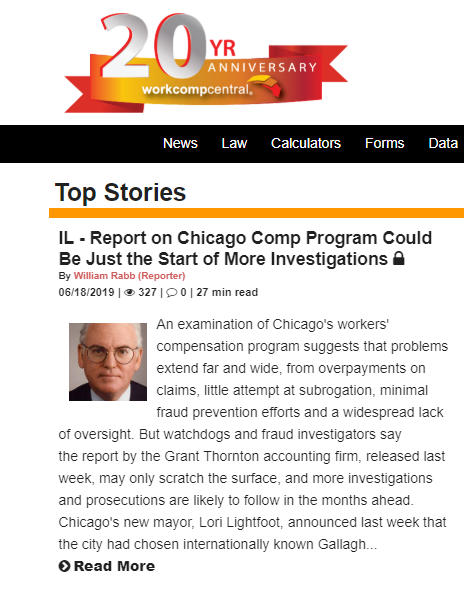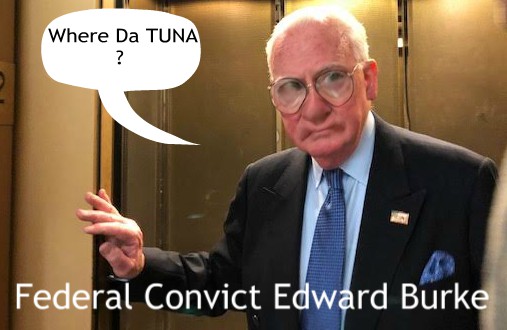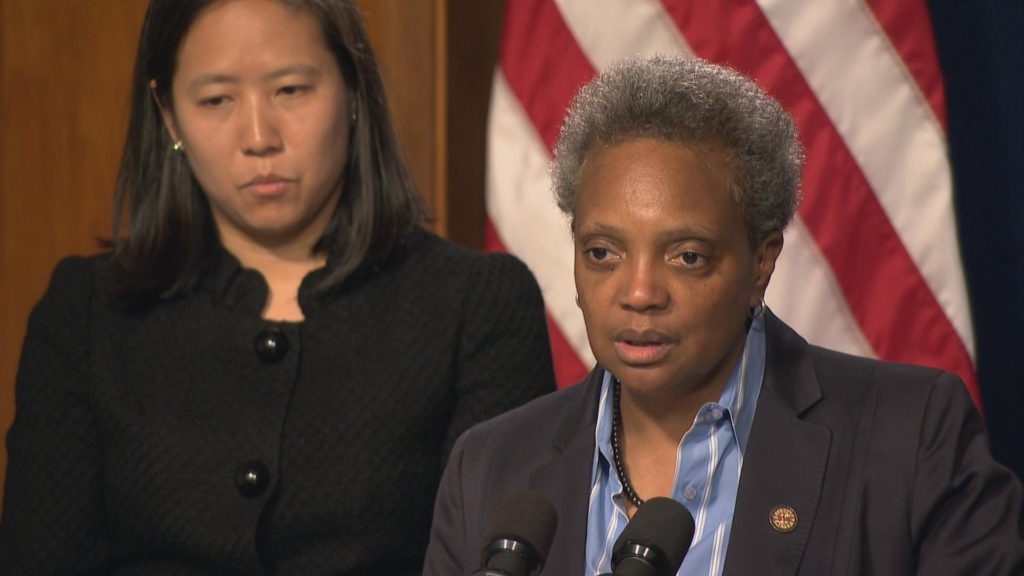
Report on Chicago Comp Program Could Be Just the Start of More Investigations

Options
By William Rabb (Reporter)
Tuesday, June 18, 2019 | 10,795 read | 0 | 24 min read
An examination of Chicago’s workers’ compensation program suggests that problems extend far and wide, from overpayments on claims, little attempt at subrogation, minimal fraud prevention efforts and a widespread lack of oversight.
Alderman Ed Burke
But watchdogs and fraud investigators say the report by the Grant Thornton accounting firm, released last week, may only scratch the surface, and more investigations and prosecutions are likely to follow in the months ahead.
Chicago’s new mayor, Lori Lightfoot, announced last week that the city had chosen internationally known Gallagher Bassett, a claims management firm with offices in Illinois, to administer the comp program. The firm will have to cull through thousands of claims to determine how many are legitimate, after years of allegations that Alderman Ed Burke ran the program as a jobs and patronage mechanism that awarded benefits to friends and denied compensation as punishment to others.
That means that some workers who have received benefits could soon find themselves under the microscope.
“Generally speaking, if someone is the beneficiary of a false claim, that violates the act, and it’s something we would look at,” said Robert Bauer, assistant deputy director of the Illinois Workers’ Compensation Commission’s fraud division.
The state commission’s statistics reinforce the Grant Thornton report that reducing fraud was not a priority for the city program. In the last three years, Chicago’s comp program has referred only two suspected fraud cases to the state — one in 2016 and one in 2017, Bauer said.
But the winds of change are blowing. After Burke was indicted in January on unrelated federal extortion charges, he stepped down as chairman of the City Council’s Finance Committee, which for three decades had managed the comp program.
Now with the program moved to the mayor’s office and more investigations expected, some of those Burke-favored workers who had been receiving benefits have suddenly returned to their city jobs and have given up benefits, said city worker Patrick McDonough.
“Some of the guys who were on the mystery ship have made miraculous recoveries,” said McDonough, the lead plaintiff in a federal lawsuit against Burke.
McDonough said he met with FBI agents last week and named five city workers who unexpectedly had returned to their jobs, some of whom had been receiving wage-replacement benefits for years. Since then, several other whistleblowers have given statements to federal investigators, he said.
McDonough, a plumber by trade who was injured in 2013 when his foot was smashed by a city truck, is on other side of the program’s alleged favoritism. After McDonough said he blew the whistle on alleged abuses in the city comp department, his own benefits were halted.
“I’ve been out of work for three-and-half years with no benefits whatsoever,” he said Monday.
The plumber said that he also believes Burke was able to keep prying eyes out of the city’s self-insured comp program for so long because he may have funneled workers’ compensation funds to other aldermen. Burke was able to secure city ordinances through the years that blocked audits of the comp program, an arrangement that has now changed.
Burke could not be reached for comment Monday.
Meanwhile, the examination by Grant Thornton, which was commissioned by the city’s Corporation Counsel after aldermen voted last December to move the comp program to the executive branch, highlights a number of questionable practices and what the report called “suspicious behavior.”
A summary was released to the public in May, but the full, 78-page report was not posted until last week. The accounting firm said the assessment stops short of being an audit, and it did not investigate alleged malfeasance. But the document does spotlight several concerns for 2017 and 2018.
Among the findings:
Clusters of claims. Most of the claims came from the southwest sector of Chicago, which includes Burke’s Ward 14.
“Further review of claims filed by claimants residing in these areas should be considered as the clusters could be indicative of a trend or a potential scheme,” the report said.
Benefits for nonclaims. Several claims were “record only” and should not have resulted in benefits. Yet benefits were paid on these, the report said. It did not indicate the dollar amount of the payouts, but noted examiners found that some adjusters’ average payout per claim was well above the average.
A further analysis “can assist in identifying adjusters with a potential misunderstanding of the payments requirements as defined by the program, adjusters with inadequate training or attention to detail, or other suspicious behavior,” the report said.
Out-of-state medical bills. More than 25% of all payments for medical bills were to providers outside Illinois. Some of that was explained by the program’s “preferred medical prescription company” handling most medication payments, which went to providers in Arizona, the report said. It did not provide further detail on that, but noted that when that was adjusted for, 10% of provider payments still went to medical firms outside the state.
Claims failed oversight tests. The accounting firm sampled 109 claims and tested them against state regulations, industry best practices and procedures in place in the city comp program. All claims failed at least three tests. Many were not reviewed by a supervisor in an initial compensability assessment, and others were not assigned to an adjuster within 24 hours.
“Grant Thornton identified three broad areas for improvement that may lead to more robust claims administration,” the report stated. These areas are “(1) developing thoroughly documented policies and procedures that encompass the entire claim administration process and include monitoring and oversight mechanisms, (2) instituting a formalized training regimen for all program employees, and (3) performing a continual assessment of the systems, protocols, and inter-departmental communication channels for operational effectiveness and efficiency to support the program’s ultimate goal of returning employees to work as quickly and safely as possible.”
Many claims, one law firm. One law firm, Hennessy & Roach, handled more claims appeals and litigation than any other. But the type of legal work the firm did was not evident, the report noted.
“Based upon the documentation made available to us, it is unclear as to the amount and duration of any legal support” for 23 claims that Grant Thornton examined. Of 18 other claims examined, no evidence could be found that the program director had authorized settlements.
The accountants recommended that the comp program develop a list of approved external law firms to handle claims cases, and develop criteria on when claims should be referred to attorneys.
Subdued subrogation. Of 11 claims tested, 10 showed no documentation that third-party recovery had been attempted, a standard practice for most insurance carriers.
Overpayments. The accounting firm tested a sampling of claims and found that six of 39 had been overpaid by a total of $14,073.
“All overpayments were related to indemnity benefits being paid after indemnity benefits were stopped or because of incorrect calculation of indemnity benefits,” the report noted.
The findings come as little revelation to those who have followed the city’s compensation program for years.
“There have always been rumblings about what goes on over there, so none of it surprises me,” said Norman Burdick, an attorney and insurance defense-firm investigator. “I suspect you’ll see a lot of prosecutions now.”
Burdick, a former investigator for the state Workers’ Compensation Commission, praised the selection of Gallagher Bassett to administer the city program and examine the thousands of outstanding claims.
“They are a very solid company and are good at handling claims, from what I have seen,” he said. “That’s very good news.”
He suggested that if suspected fraud cases were not handed over to the state compensation commission’s fraud unit, which still has only two investigators statewide, city officials should ask the Cook County prosecutor to take charge.
Another, long-term solution, he said, would be to allow a commercial insurance carrier to write the compensation coverage, which would provide a profit incentive to sniff out and prevent fraud, waste and abuse.
